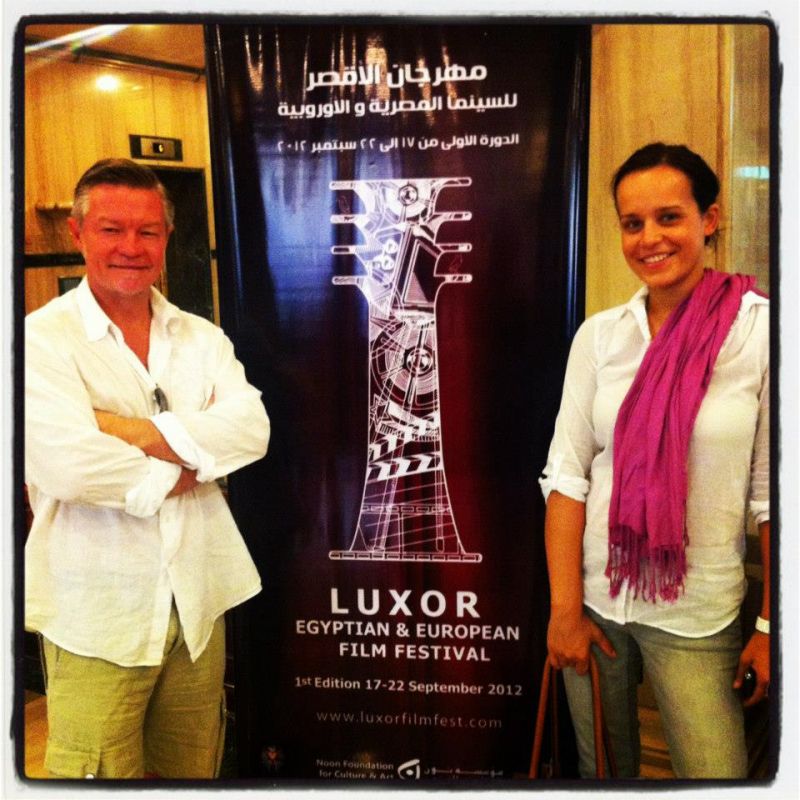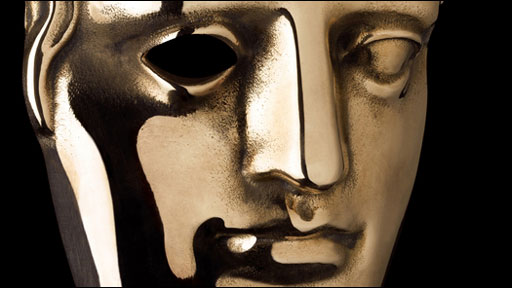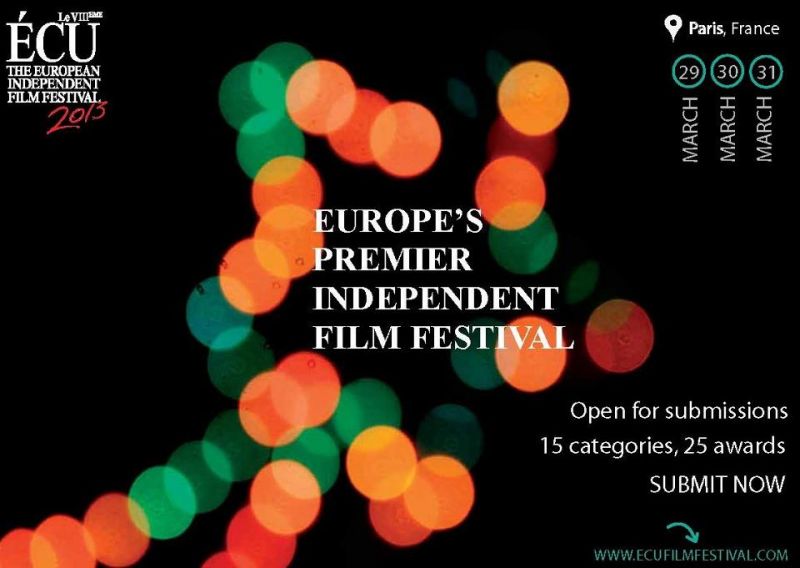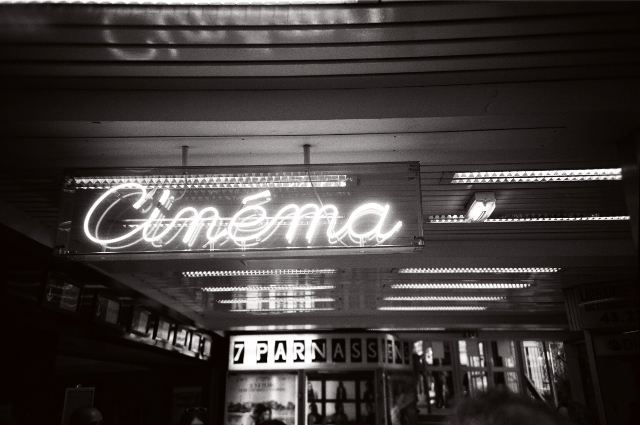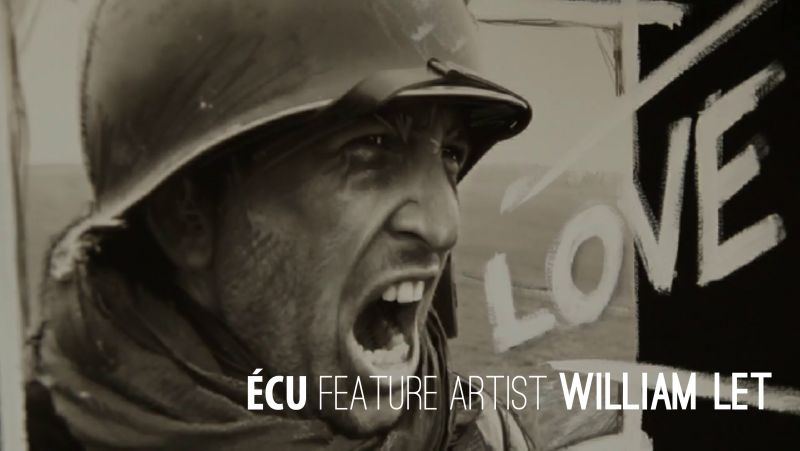|
|
||
|
Pro Tools
FILMFESTIVALS | 24/7 world wide coverageWelcome ! Enjoy the best of both worlds: Film & Festival News, exploring the best of the film festivals community. Launched in 1995, relentlessly connecting films to festivals, documenting and promoting festivals worldwide. Working on an upgrade soon. For collaboration, editorial contributions, or publicity, please send us an email here. User login |
Meet Indie Filmmaker: SZCZEPAN PRZYGODA
Labelled a goldbrick or a loafer in the times before Poland’s democratic transformation in 1989, the eponymous ‘hero’ of Sebastian Czech’s documentary spends his days in carefree and alcohol fuelled bliss, in between dodging various prison sentences for failure to pay his debts. A brutally honest and candid depiction of one man’s existence…. By Mairi Cunningham Q: Firstly, tell me what motivated you to tackle the issues you did? “You have to go and know how to read some signs. Maybe I just lost that ability. I must have encountered a cross wind along my way, you know…”. In my opinion Szczepan Przygoda is a good example of a person who made some mistakes during his life and cannot go back. He’s not an angel of course. You can call him an idler and a drunkard and probably you will be right. But is this enough to send him to jail every time he does something wrong? I’d like other people to think about it for a while. Maybe they will judge Szczepan Przygoda more fairly than authorities. Q: How did you approach Szczepan and how long a period of time did you spend filming his life? Also, did you encounter any difficulties or restrictions on what you were able to film? I met Szczepan eleven years ago, when I moved from my parents. He lived in the same block of flats where I started to live. I remember our first meeting: it was late night next to my door. Szczepan and his companions were completely drunk and wanted me to fight against them, because I was the brand new inhabitant of “their” block of flats. Some kind of an “enemy”, you know. Fortunately I was very tired and offered them to get back to the topic tomorrow. I wished all the company “good night” and quietly closed my door. Szczepan visited me next day sober, to apologize. He also said that I had behaved well in a difficult situation… He seemed to me a clever person with a sense of humour who lost himself somehow in his life. The idea to make a documentary about Szczepan Przygoda came from the very beginning of our relationship, but unfortunately he disappeared shortly after our discussion because of one of his numerous sentences, so we were continuing our talks by letter. When Szczepan went to jail another time (last year) I decided to start shooting. It took me three months. I prefer to work alone dealing with a documentary matters. It’s more comfortable especially when you are unable to prepare a strict timetable of shooting days and if you want to build a good relationship with the person you are accompanying with a camera of course. Restrictions? The only so called restrictions came from the authorities: the community centre, Szczepan’s probation officer and Szczepan’s doctor. They didn’t want to appear on the screen. There were no restrictions from Szczepan’s side because he trusts me. I just asked him to let me follow him with a camera and capture everything I would find interesting to go forward with a story. Finally, when the documentary was cut and ready to show, we sat by the screen together with the other guys who appeared on the film. In the beginning, Szczepan was a little bit ashamed, at some moments he laughed louder than other viewers and finally he was emotionally moved. After the screening he asked: “Can we watch it another time?” Q: There is always a risk when making a documentary that the subject changes his behaviour when he is aware that he is being filmed and ‘acts up’ to the camera so to speak. Is this an issue you encountered? Szczepan offered several times to do something “for the camera”. For example, I missed a brawl between him and one of his colleagues. We thought about a replay, but finally both of us found this idea ridiculous. I needed to ask Szczepan just to be himself (because it was enough). I decided to make this documentary in a “direct cinema” way, so I was just following the action. : Describe to me your relationship with Przygoda. In the scene when he lies to the authorities about his drinking habits for example, it struck me that you must have been placed in a fairly awkward position. Was there a rapport of trust and friendship that developed throughout the filming period or was your relationship purely that of the ‘observer’ and the ‘observed’? Of course our relationship isn’t purely divided between that of the “observer” and “observed”. It last from a long time and it’s built on friendship and trust (and quarrelling sometimes). Speaking about the scene when Szczepan lies to the authorities: I couldn’t expose him because of two points at least. Firstly – he trust me and I took full responsibility for him. I can compare it to the war correspondent situation when he cannot cross the front line and change his side just like that. Secondly – this scene shows part of his true character. Q: Are there any documentary makers who you are particularly inspired by? I’m inspired by some Polish documentary makers. Krzysztof Kieslowski (well known rather because of his feature films), Wojciech Wiszniewski (director), Zbigniew Rybczynski (director and cinematographer, Academy Award winner in 1983) and Bogdan Dziworski (director and cinematographer). Each of them developed his own, unique style. Their works showed me a very simple thing: it’s worth finding your own way and keeping it to be honest to yourself. Dealing with films, not only with documentaries, takes such a long time that I can’t say it’s only a job for me. It’s a way of life. Q: Finally do you feel that the documentary has a role to play in bringing people’s awareness to the social issues and the plight of individuals such as Przygoda Szczepan. I probably couldn’t have made this documentary if I didn’t believe in it. For different sorts of authorities individuals like Szczepan Przygoda are completely worthless, probably dangerous and should spend the rest of their lives isolated in prison. My opinion is different in such a case. But I’m not sure if my documentary is able to make Szczepan`s probation officer aware of his client’s hard situation. Actually Szczepan paid his debt to the mobile phone operator, but the probation officer still wants him to go to jail. Just as an example of justice….I probably couldn’t have made this documentary if I didn’t believe in it. For different sorts of authorities individuals like Szczepan Przygoda are completely worthless, probably dangerous and should spend the rest of their lives isolated in prison. My opinion is different in such a case. But I’m not sure if my documentary is able to make Szczepan`s probation officer aware of his client’s hard situation. Actually Szczepan paid his debt to the mobile phone operator, but the probation officer still wants him to go to jail. Just as an example of justice…. 09.03.2010 | ÉCU-The European Independent Film Festival's blog Cat. : Academy Award Bogdan Dziworski cellular telephone correspondent Director ecu Entertainment Entertainment european independent film festival. european independent films Film Films forward Human Interest Human Interest independent film indie film judge Law Law officer Person Career Quotation Sebastian Czech szczepan przygoda Szczepan Przygoda tackle Wojciech Wiszniewski Zbigniew Rybczynski FILM
|
LinksThe Bulletin Board > The Bulletin Board Blog Following News Interview with EFM (Berlin) Director
Interview with IFTA Chairman (AFM)
Interview with Cannes Marche du Film Director
Filmfestivals.com dailies live coverage from > Live from India
Useful links for the indies: > Big files transfer
+ SUBSCRIBE to the weekly Newsletter Deals+ Special offers and discounts from filmfestivals.com Selected fun offers
> Bonus Casino
User imagesAbout ÉCU-The European Independent Film Festival Hillier Scott Hillier Scott (ECU)
Scott Hillier, Founder and President of ÉCU - The European Independent Film Festival
Scott Hillier is a director, cinematographer, and screenwriter, based in Paris, France. In the last 20 years, Hillier has gained international recognition from his strong and incredible cinematography, editing, writing, producing and directing portfolio in both the television and film industries.
Scott began his career in the television industry in Australia. In 1988, he moved to London getting a job with the BBC who then set him to Baghdad. This opportunity led him to 10 years of traveling around world for the BBC, mainly in war zones like Somalia, Bosnia, Tchetcheynia, Kashmir, and Lebanon. After a near fatal encounter with a Russian bomber in Tchechnyia, Hillier gave up his war coverage and began in a new direction.
He moved to New York City in 1998. He directed and photographed eight one-hour documentaries for National Geographic and The Discovery Channel. Based on his war knowledge and experience, Hillier wrote and directed a short film titled, “Behind the Eyes of War!" The film was awarded “Best Short Dramatic Film” at the New York Independent Film and TV Festival in 1999. From that he served as Supervising Producer and Director for the critically acclaimed CBS 42 part reality series, "The Bravest” in 2002 and wrote and directed a stage play called, "Deadman’s Mai l," which ran at Le Théâtre du Moulin de la Galette in Paris during the summer of 2004. He then became the Director of Photography on a documentary titled, “Twin Towers." This was yet another life changing experience for Hillier. The riveting documentary won an Academy Award for "Best Documentary Short Subject" in 2003. In 2004, Hillier changed continents again, spending three months in Ethiopia. He produced “Worlds Apart,” a pilot for ABC America / True Entertainment / Endemol. As you can see, Hillier was and is always in constant movement and enjoys working in a number of diverse creative areas including documentaries, music videos, commercials, feature and short films.
Scott studied film at New York University and The London Film and Television School. He also studied literary non-fiction writing at Columbia University. Hillier's regular clients include the BBC, Microsoft, ABC, PBS and National Geographic. Between filming assignments, he used to teach film, a Masters Degree course in Screenwriting at the Eicar International Film School in Paris, France and journalism at the Formation des Journalistes Français in Paris, France.
View my profile Send me a message The EditorUser contributionsUser links |




















